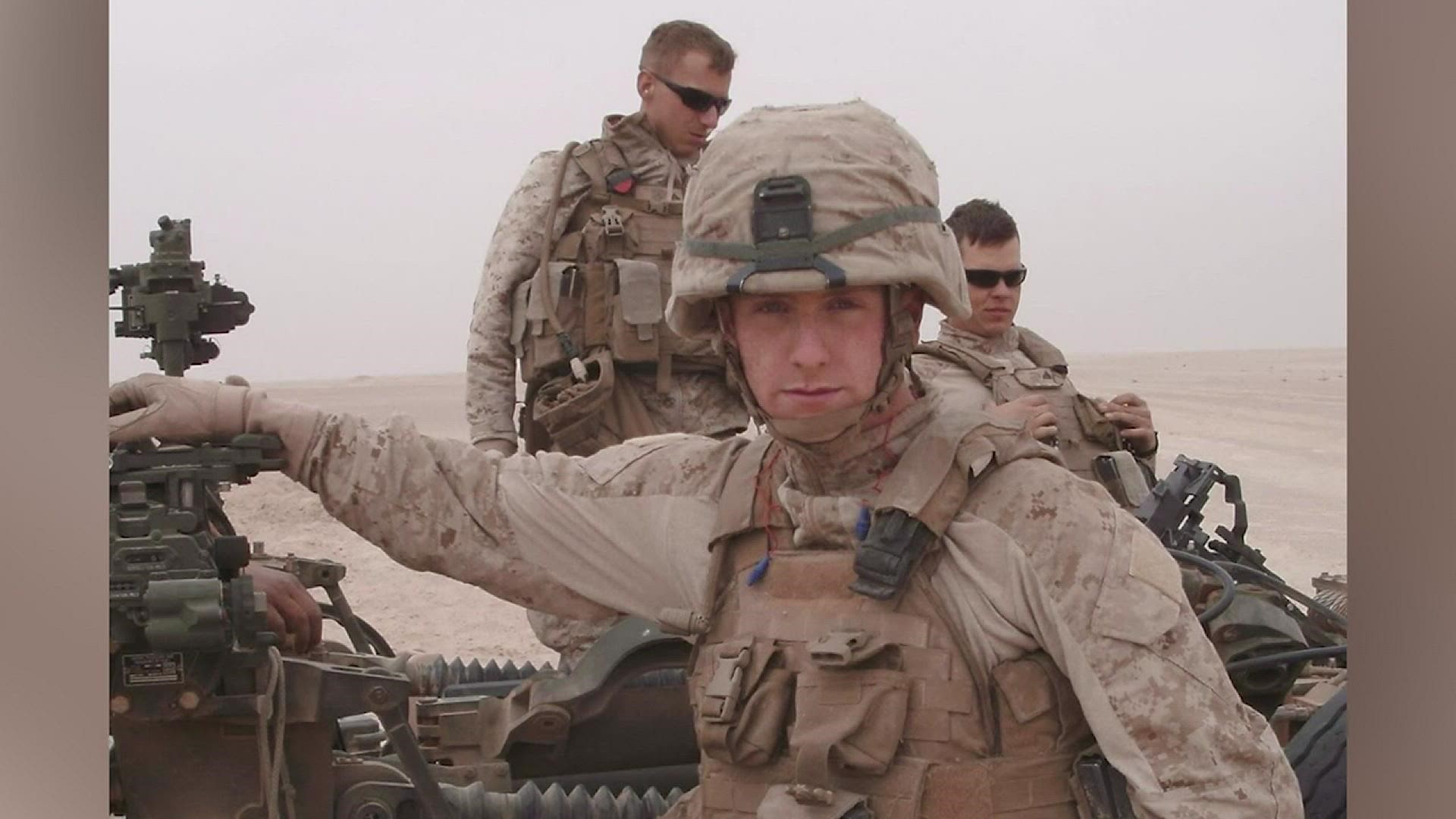As events continue to unfold in Afghanistan, local veterans that served in the country continue to deal with watching the shocking scenes in a place they spent time serving. Monmouth native Andrew Sichling served as a sergeant in the marines from 2008 to 2015. He did two tours in Afghanistan, the first in 2008 for 8 months and the second in 2012.
Sichling shares it’s devastating to watch the images being broadcasted from overseas saying, “I’ve been to that airport numerous times. I was in Kabul. So, I’m seeing streets that I actively patrolled. It breaks my heart when I see the Afghans trying to cling on to the planes. Because they never asked for this, and we've been at this for 20 years.”
His first time in Afghanistan Sichling spent time in the Helmand province, a southern area of the country. He says his mission there was to regain control saying, “To get Helmand Province back under control and help the local Afghan get rid of the Taliban.”
It was in 2012 when Sichling reenlisted that he spent time in Kabul. He says it feels like an abandonment of those who helped American soldiers while overseas. “I feel like we’re failing the interpreters who put their lives on the line. In fact, my unit we lost interpreters because they got killed during the night, because they were working with us. Now we’re just abandoning them.”
It’s not just those that worked with Sichling that he fears for either. He says it’s alarming to think about what might happen to women and children as well. Sichling saying, “Afghanistan just went back to women are going to be in burkas again. Women aren't going to be allowed to walk down the streets without male escorts. When I was there, I saw young women going to school in blue jeans and T shirts. Not anymore. It's all gone.”
Although it was 9 years ago, Sichling still says it was clear even then to soldiers on the ground that this is the direction things would go when the United States pulled out of the country. “Even in 2009, we joked about it. I was 19. I'm 31 now. It was just even operational that if you leave an area, you just had to assume that they were going to come in and plant bombs, and they did. So, that's just what this is. That's just the status quo for them. So, like this, it does not surprise me one single bit.”
It’s a stark reality for Sichling, but still not one that changes his service he did in Afghanistan. Sichling saying, “I’m not going to sit here and say my war was in vain. Because I know we helped people. I know I did. There are little kids that I still remember, that I still think about. We would have foreign families tell us I got my first full night of sleep last night because you guys dug into my backyard.”
In Sichling’s opinion, there were things that could have been done differently to help ease the transition. Sichling saying it would have been better to withdraw quietly, instead of announcing it boldly. “It's better to move in and out in darkness and in silence. You know how it is when you're at a party, you just want to get out, you just leave you don't say, alright, everybody, I'm out. Then a rocket starts so you don't do that.”
Still the Department of Veterans Affairs is extending a helping hand to Afghanistan veterans who may be experiencing increased levels of PTSD, depression, or confusion over what is happening. Here in the Quad Cities, the Veterans Outreach Center is just one resource for veterans looking for help.
Don Arns is a veteran himself, and also sits on the advisory board for the Quad Cities Veterans Outreach Center. He says veterans can come in for a variety of reasons. “We try to provide a place for the veterans to come in, they can sit down, they can talk to the volunteers that are here. But maybe more importantly, we provide a place where they can sit down with other veterans. Sometimes that's the most important thing, is to give them a chance to talk to somebody who understands what it is they're thinking or dealing with.”
In addition to that, the center provides resources to Vets who might not be able to be helped at the center. Arns saying, “There's a lot of things available to veterans that aren't well known. When somebody's struggling with an issue or a concern, or something in their life, and they don't know where to turn, they know that they could come here and we can help them find the best help for connecting those dots.”
For veterans seeking immediate help you can reach out to the Department of Veterans Affairs crisis hotline at 1-800-273-8255.

